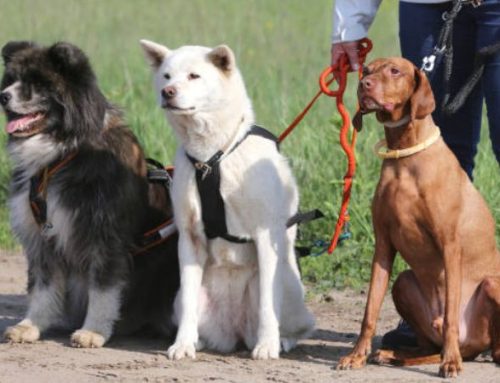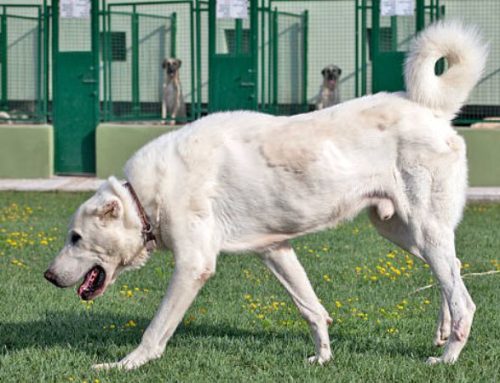Thinking about bringing a furry friend into your home? Adopting a dog is a meaningful way to give a pet a second chance — and gain a loyal companion in return. But before you head to the shelter, it’s important to understand the costs involved. With Nexus-Pets, we’ll break down how much it really costs to adopt a dog and why the adoption fee is a small price to pay for a lifetime of love.

Average Cost to Adopt a Dog from a Shelter
Adopting a dog from a shelter is often one of the most affordable ways to bring home a furry companion. On average, adoption fees in the United States typically range from $50 to $500, depending on various factors. Some municipal shelters or nonprofit organizations may charge as little as $50 to $80, while private rescues or breed-specific organizations can request fees upwards of $300 to $500, especially for puppies or purebred dogs.
Several elements contribute to this variation:
- Location: Shelters in urban areas or regions with a higher cost of living tend to charge more than those in rural or low-income communities.
- Shelter Type: Municipal animal control facilities often have lower fees compared to privately operated or nonprofit rescue groups, which may include additional services in the cost.
- Breed and Age of the Dog: Purebreds and younger dogs, particularly high-demand breeds like French Bulldogs or Golden Retrievers, usually come with higher adoption fees. Conversely, older dogs and mixed breeds are often less expensive.
- Included Services: Many shelters factor in the cost of veterinary care such as spaying/neutering, vaccinations, microchipping, and wellness checks, which can justify a higher fee but ultimately save adopters money long-term.
Understanding these factors will help set realistic expectations and guide you in choosing the best shelter or rescue for your needs and budget.
What Does the Adoption Fee Cover?
When you adopt a dog from a shelter or rescue organization, the adoption fee helps cover a wide range of essential services and care the animal has received. Most importantly, this fee typically includes veterinary care, such as core vaccinations, spaying or neutering, and a full health check to ensure the pet is ready for a new home. It also often covers microchipping and registration, which not only helps reunite lost pets with their owners but may also be legally required in some regions.
In many cases, the fee contributes to initial medical treatment the pet may have needed upon intake, such as flea and tick prevention, deworming, or even emergency care. Beyond individual care, your adoption fee also supports the ongoing operations of the shelter, including food, daily care, cleaning, and utilities. Since many rescue groups are run by volunteers and rely heavily on donations, these fees are crucial for sustaining their lifesaving work. While the fee may not cover every dollar spent on an animal, it plays a vital role in helping shelters continue to rescue, rehabilitate, and rehome pets in need.

Additional Costs Beyond Adoption Fees
While the adoption fee covers essential initial care for your new dog, it’s just the beginning of your financial commitment. Once your pet is home, you’ll need to invest in initial supplies, such as a collar, leash, ID tags, food and water bowls, a bed, toys, and grooming tools. These essentials can add up quickly—typically ranging from $200 to $500 depending on the quality and quantity of items purchased.
In addition to one-time setup costs, ongoing veterinary care is crucial to maintaining your dog’s health. This includes annual check-ups, core vaccinations, flea and tick preventatives, heartworm medications, and dental care. These routine expenses often total around $500 to $1,000 per year, but can vary based on your dog’s size, age, and health needs.
Training and behavioral classes are another common post-adoption expense, especially for puppies or dogs with specific behavioral challenges. Group classes or private sessions can help build a strong bond between you and your dog, but they may cost anywhere from $50 to several hundred dollars, depending on location and the trainer’s expertise.
Lastly, adopters should always budget for unexpected medical costs. Emergencies like injuries, infections, or chronic conditions can result in substantial veterinary bills, sometimes running into the thousands. Purchasing pet insurance or setting up an emergency savings fund can help mitigate the financial impact of these unforeseen events.
Cost Differences by Dog Type and Age
The cost to adopt a dog can vary based on several key factors, including age, breed, and health condition. Here’s how these differences break down:
1. Puppies vs. Adult or Senior Dogs
- Puppies are often the most expensive to adopt, with fees ranging from $300 to $800+.
- This is because they require extensive early veterinary care like vaccinations, microchipping, and desexing.
- Adult dogs usually cost between $100 and $400 to adopt.
- Senior dogs may have even lower fees or be offered for free to encourage adoption.
2. Purebred vs. Mixed Breed
- Purebred dogs, especially popular or designer breeds, tend to have higher adoption fees due to demand and care costs.
- Mixed breed dogs are generally more affordable and often come with fewer breed-specific health issues.
3. Special Needs Dogs
- Dogs with medical or behavioral challenges may have lower fees or be offered for donation only.
- While adoption costs are low, be prepared for ongoing care expenses like medication, therapy, or frequent vet visits.
- Many rescue groups offer support or financial assistance to help families adopt special needs pets.

Ways to Lower Dog Adoption Costs
While adopting a dog is often more affordable than buying from a breeder, the associated costs can still be a barrier for some prospective pet parents. Fortunately, there are several smart and accessible ways to reduce these expenses without compromising the care and well-being of your future furry companion.
1. Take Advantage of Adoption Promotions and Discounted Events
- Many shelters and rescue organizations regularly participate in seasonal or national adoption campaigns, such as Clear the Shelters, National Pet Adoption Weekend (hosted by PetSmart Charities), or Adopt-a-Shelter-Dog Month.
- During these events, adoption fees are often significantly discounted or even waived entirely, while still including standard services like vaccinations, microchipping, and spaying/neutering.
- Some shelters also offer “name your price” days, giving adopters flexibility in what they pay.
2. Explore Subsidies and Financial Assistance Programs
- Certain nonprofit organizations and local governments offer subsidies or vouchers that help offset the cost of pet adoption or medical care, especially for low-income families, veterans, seniors, or individuals with disabilities.
- Programs may cover essentials such as vaccinations, sterilization surgeries, or initial pet supplies.
- Ask the shelter staff or check their website to see if such support is available in your area or through partner charities.
3. Consider Adopting from Smaller or Municipal Shelters
- City-run or county shelters often have lower adoption fees compared to private rescue groups or breed-specific organizations.
- These shelters may be more focused on reducing overcrowding and euthanasia rates, so they frequently offer fee-waived adoptions or “adopt one, get one” promotions.
- Additionally, rural or less populated shelters may have more affordable rates and be less competitive, increasing your chances of finding the right dog without the added cost.
When adopting a dog from a shelter, it’s important to understand that the adoption fee is not a payment for the dog itself. Instead, it is a crucial contribution that helps the shelter cover the extensive costs of the care the dog has received. This includes essential services like spaying or neutering, vaccinations, microchipping, and other necessary medical treatments. The fee ensures that the shelter can continue its vital work of rescuing and caring for other animals in need.






